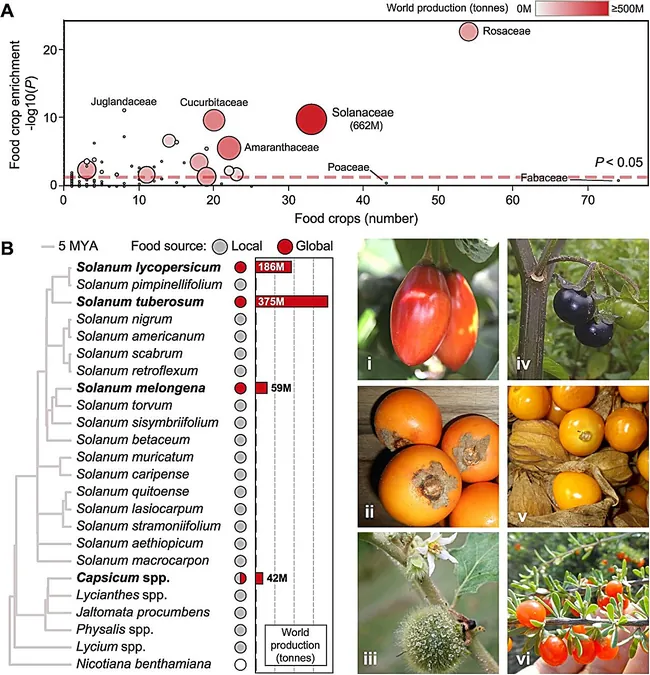
Unlocking the Future of Food Security: How Biotech is Revolutionizing Solanaceae Crops
2024-12-23
Author: Daniel
Introduction
In a world increasingly threatened by climate change and population growth, our food security hangs by a thread, largely due to the perilously limited genetic diversity of the crops we rely on. Alarmingly, only a small number of species are cultivated for mass production, leaving global agriculture vulnerable to pests, diseases, and shifting environmental conditions.
Exploring the Solanaceae Family
Recognizing this urgent issue, researchers have set their sights on enhancing the genetic diversity of the Solanaceae family—an essential group of plants that includes beloved staples such as potatoes, tomatoes, eggplants, and peppers. A new study published in Horticulture Research by a collaborative team from the University of Florida and the Consejo Superior de Investigaciones Científicas—Universitat Politècnica de València (CSIC-UPV) in Spain reveals groundbreaking advancements that could transform our approach to crop resilience and food security.
Innovative Biotechnologies
The research delves into the application of innovative biotechnologies, particularly recombinant virus technologies (RVTs). These advanced methods allow scientists to accurately modify genetic traits in Solanaceae crops, not only targeting widely cultivated varieties but also bringing lesser-known species with substantial potential into the spotlight. This could be a game-changer for improving food systems at a local and global level.
Engineered Viruses and Their Impact
Through the use of engineered viruses, the researchers can induce changes in plant characteristics—enhancing disease resistance, improving nutritional value, and increasing adaptability to diverse environmental conditions. This is particularly crucial in combating the challenges posed by climate change and increasing food demands worldwide.
Advancements in Reverse Genetics
What sets this study apart is its exploration of the latest advancements in reverse genetics, particularly focusing on negative-stranded RNA viruses. This technique creates viral vectors that can seamlessly deliver CRISPR-Cas components directly into plant cells, facilitating targeted and inheritable genetic modifications. The implications are vast, potentially unlocking pathways for more efficient crop development strategies that could ultimately lead to bountiful harvests even in adverse conditions.
Conclusion
Lead author Fabio Pasin expresses his enthusiasm for the research's impact, stating, "Our study showcases what is possible when deep taxonomic knowledge meets cutting-edge biotechnology. By focusing on the Solanaceae family, we have the opportunity not just to strengthen well-known crops but also to elevate underutilized species. This will enhance food security and nutritional diversity on a global scale." As the world grapples with increasing food insecurity, the findings from this research could not come at a more critical time. By fostering greater genetic diversity through biotechnological innovations, we stand on the cusp of a new agricultural revolution that promises a more resilient, sustainable, and nutritious food future. Don't miss out on this enlightening journey into the future of crop production!


 Brasil (PT)
Brasil (PT)
 Canada (EN)
Canada (EN)
 Chile (ES)
Chile (ES)
 Česko (CS)
Česko (CS)
 대한민국 (KO)
대한민국 (KO)
 España (ES)
España (ES)
 France (FR)
France (FR)
 Hong Kong (EN)
Hong Kong (EN)
 Italia (IT)
Italia (IT)
 日本 (JA)
日本 (JA)
 Magyarország (HU)
Magyarország (HU)
 Norge (NO)
Norge (NO)
 Polska (PL)
Polska (PL)
 Schweiz (DE)
Schweiz (DE)
 Singapore (EN)
Singapore (EN)
 Sverige (SV)
Sverige (SV)
 Suomi (FI)
Suomi (FI)
 Türkiye (TR)
Türkiye (TR)
 الإمارات العربية المتحدة (AR)
الإمارات العربية المتحدة (AR)